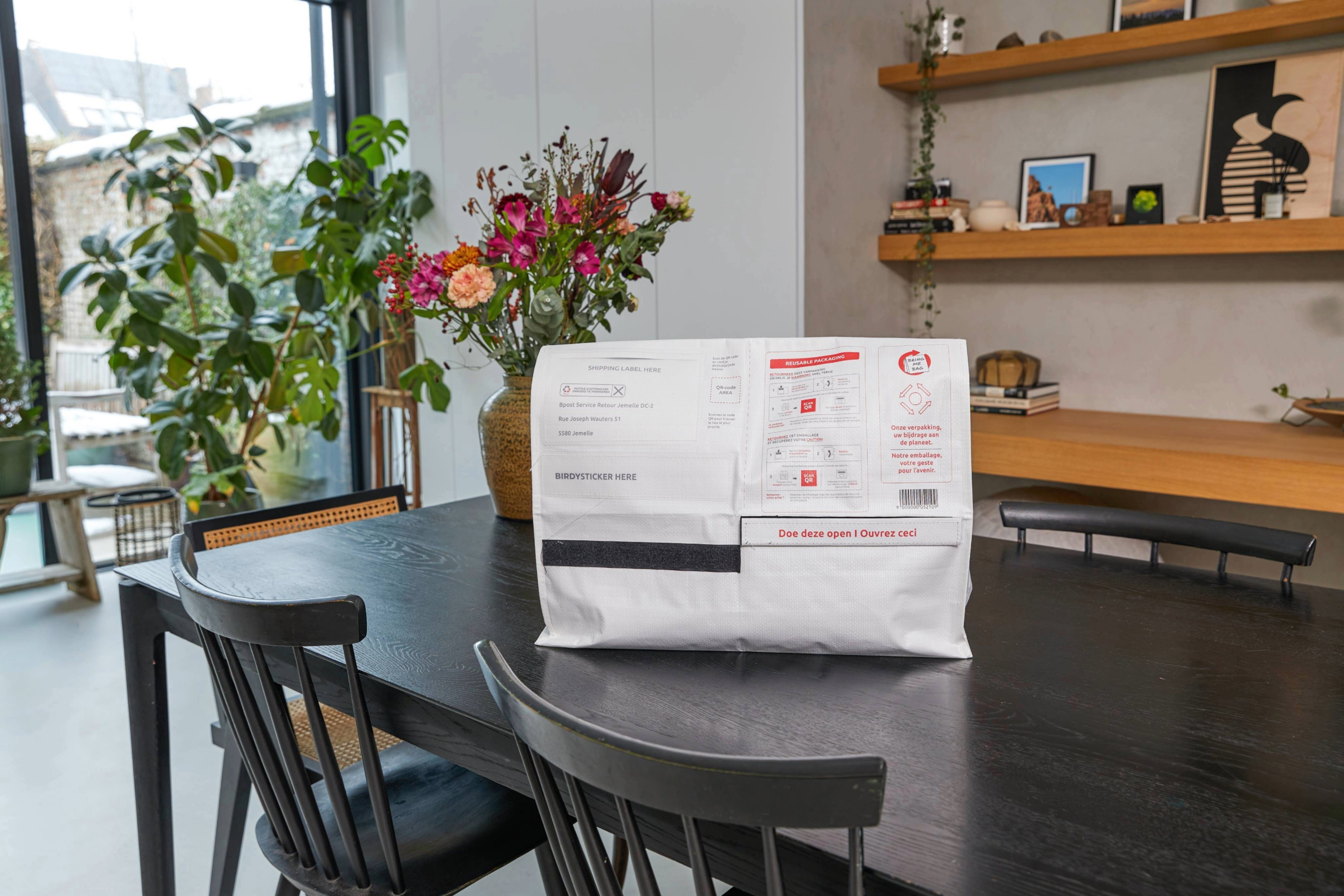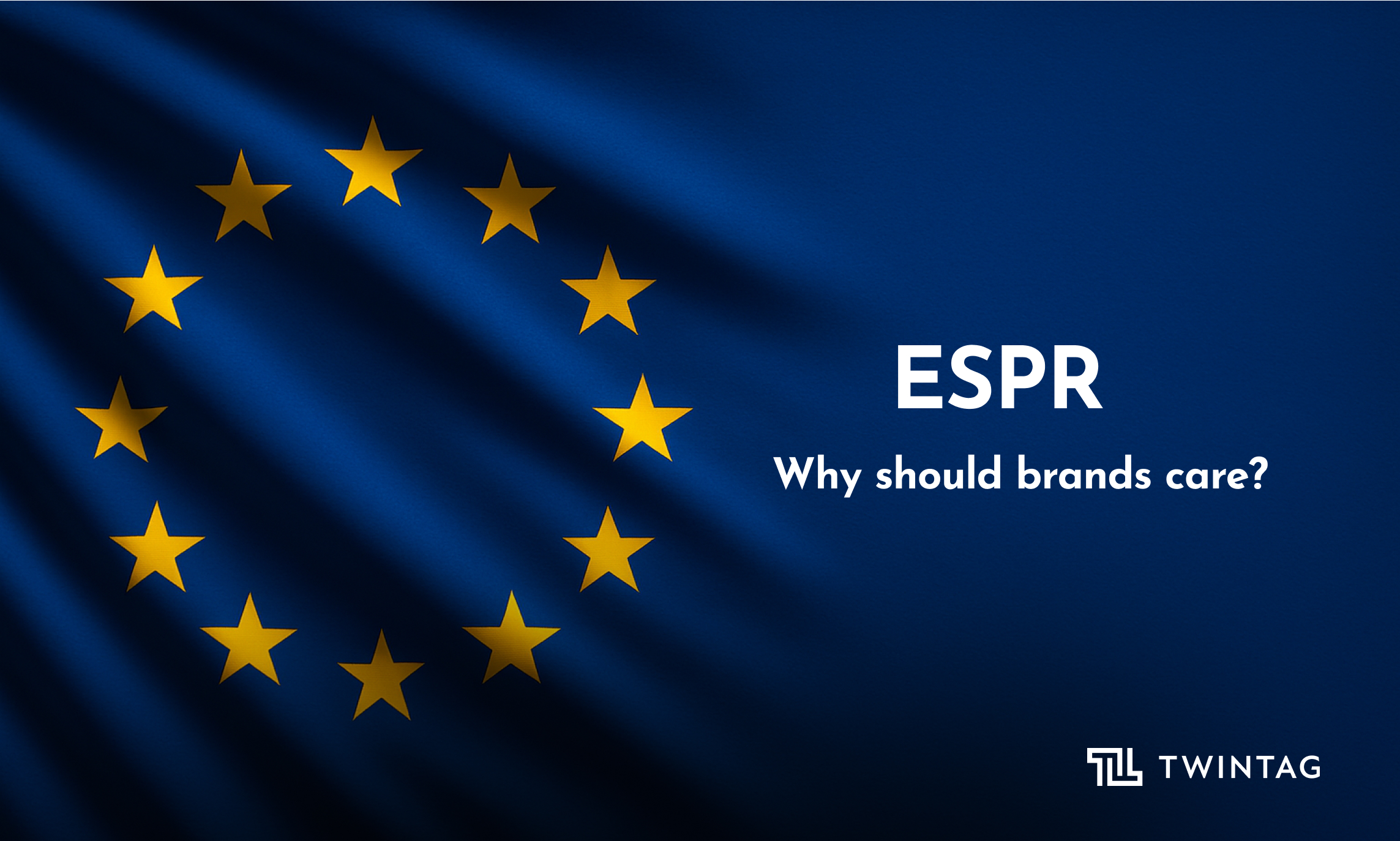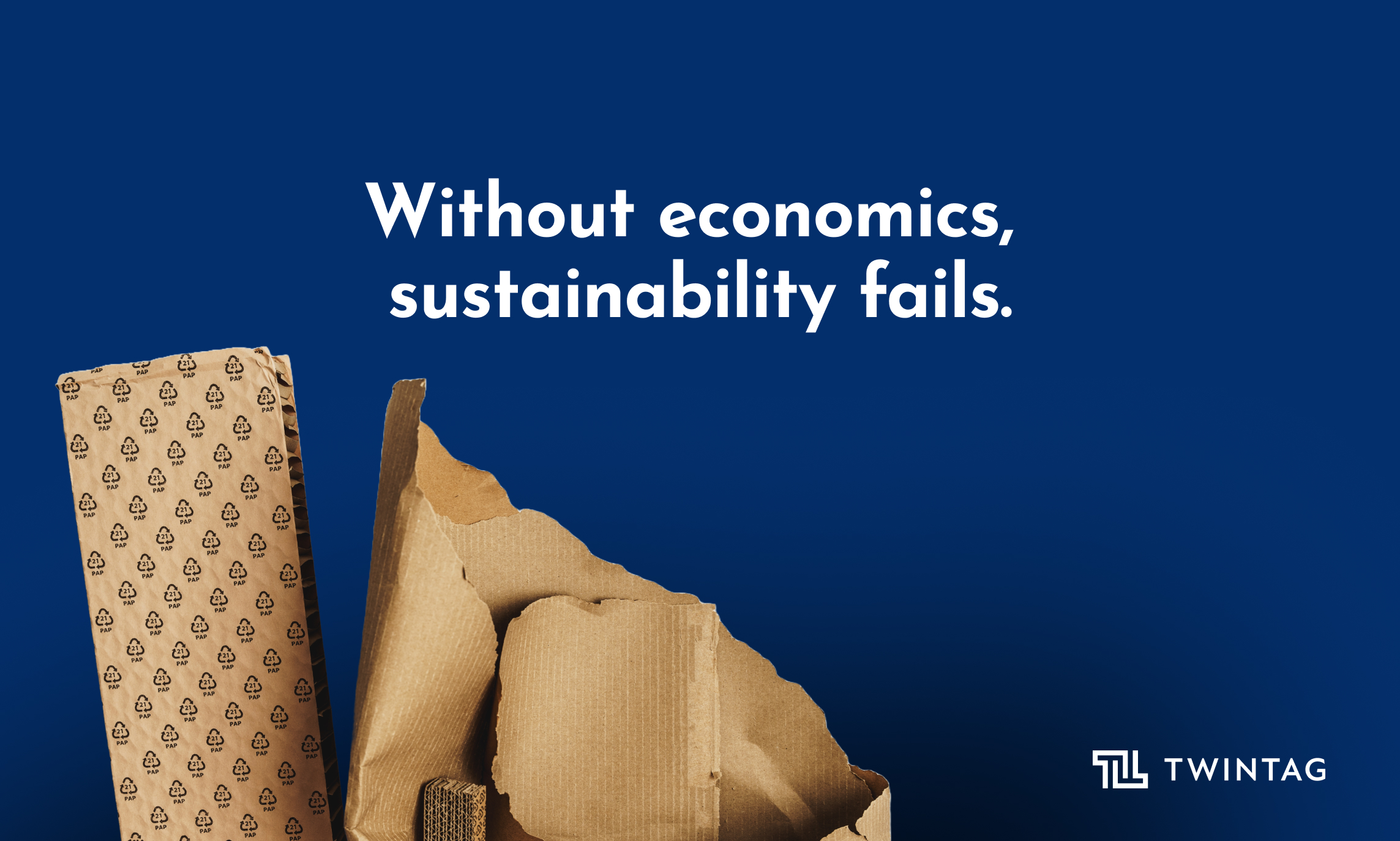How digital IDs are transforming the circular economy: a deep dive into reusable packaging use case
Recently, the circular economy gained attention as a sustainable alternative to the linear model, with reusable packaging as one of its pillars.
.png)
As industries worldwide struggle with the environmental challenges of excessive plastic waste and the depletion of natural resources posed by single-use packaging, innovative, digitally-backed solutions are becoming essential. To address that, Twintag and social enterprise MIVAS combined their expertise in digital identifiers and circular packaging to create a platform that integrates a digital unique ID (UID), displayed through a QR code, to enhance the implementation of reusable packaging.
The role of digital UIDs in reusable packaging
A digital unique identifier (UID) helps enable reusable packaging by tracking and managing each piece of packaging throughout its lifecycle —from production to consumer use, return, cleaning, and redistribution. Let’s break that down:
1. Lifecycle management
Each piece of packaging tagged with a Twintag digital ID can be tracked through its lifecycle, from use to return and reuse. Cycles can be counted towards a certified maximum usage. Monitoring of wear and tear can help build statistics. This facilitates the efficient management of packaging assets, ensuring they are utilized to their fullest potential, yet within responsible safety boundaries.
2. Cost savings and environmental impact
By optimizing the use of packaging materials and reducing the need for single-use packaging, companies can achieve significant cost savings while greatly reducing their environmental impact.
3. Real-time tracking and visibility
Connected packaging offers unparalleled visibility into the supply chain, allowing businesses to track products in real time, from manufacturing to delivery and beyond.
4. Inventory management
By providing exact data on where products are in the supply chain, businesses can manage inventory more effectively, reducing overstock and out-of-stock scenarios and optimizing warehouse space.
5. Efficient return flow
Twintag-equipped packages enable streamlined return flows, facilitating easier returns for customers and allowing businesses to manage returned goods, whether efficiently for resale, recycling, or refurbishment.
Though the concept of UIDs in packaging is not new - think for example the package tracking ID when you order something with FedEx or UPS - leveraging that same UID to facilitate novel use cases and boost circularity very much is. Let’s illustrate this with an active example.
The Boemerang project, led by MIVAS and Kingslize Pizza in Mechelen, Belgium, exemplifies how digital technology can facilitate the circular economy within the food and beverage sector, demonstrating the practical benefits of integrating digital IDs into reusable packaging systems.
The chain of operations
What sets Boemerang apart is its efficient logistics chain, which is integral to its success. Here’s how it works:
.png)
1. Provision of reusable packaging: catering providers participating in the Boemerang project supply their offerings in reusable packaging. Each piece of packaging is equipped with a unique QR code, serving as its digital ID.
2. Consumer interaction: when consumers make a purchase, they are provided with a piece of reusable packaging on loan, in exchange for a small deposit. The catering employee scans the QR code, registers the packaging in the system, and tracks its usage.
3. Returns and refunds: consumers can return the used packaging to any of the participating catering establishments. Upon return, the packaging is scanned again by the catering provider, and the deposit is refunded to the consumer.
4. Collection and logistics: packaging is collected from catering providers by Kingslize Pizza bicycle couriers and transported to a dedicated logistics hub on the outskirts of Mechelen. This system ensures efficient and eco-friendly transportation.
5. Cleaning and redistribution: at the logistics hub, MIVAS handles the cleaning of the packaging in their state-of-the-art washing facility, which was specifically designed to be able to clean containers of various sizes, shapes, and materials and adheres to the highest quality standards of food safety. During this stage, the packaging is scanned once more and reassigned to the appropriate catering establishment. This ensures that each piece of packaging is returned to its original location, ready for reuse.
6. Return to catering providers: once cleaned, the packaging is transported back to the catering establishments by the bicycle couriers, completing the cycle and ready for the next use.
Impact and benefits
The Boemerang project showcases how digital UIDs are the spinal cord of any effective reusable packaging system, as they allow to both improve operational efficiency as well as enhance consumer engagement. By providing a transparent, efficient system for tracking and managing packaging, the project contributes to significant waste reduction and supports circular economy principles. It also exemplifies how a well-designed logistic chain and digital technology can create a seamless and sustainable packaging system.
.png)
The transition to a circular economy requires innovative solutions, and digital IDs on reusable packaging are proving to be a critical component of this shift. By enabling precise tracking, enhancing consumer engagement, and improving operational efficiency, digital IDs offer a scalable solution that can transform how we approach packaging.
As initiatives like Boemerang demonstrate, the integration of digital IDs into reusable packaging systems not only support sustainability goals but also offer economic benefits. Twintag and MIVAS are further joining forces in other similar projects as well, for example, the recently launched pilot project ‘Retourpack’, testing the use of reusable six-pack crates for Cornet beer in cooperation with DW Reusables, Carrefour, and Brewery Royal Swinkels.


-min.png)



